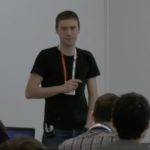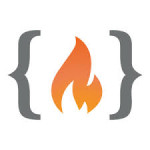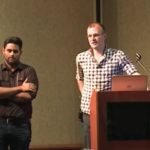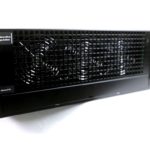“This year’s workshop continues SDSC’s strategy of bringing high-performance computing to what is known as the ‘long tail’ of science, i.e. providing resources to a larger and more diverse number of modest-sized computational research projects that represent, in aggregate, a tremendous amount of scientific research and discovery. SDSC has developed and hosted Summer Institute workshops for well over a decade.”
Introduction to GPUs in HPC
“This video is from the opening session of the “Introduction to Programming Pascal (P100) with CUDA 8″ workshop at CSCS in Lugano, Switzerland. The three-day course is intended to offer an introduction to Pascal computing using CUDA 8.”
CUDA Made Easy: An Introduction
“CUDA C++ is just one of the ways you can create massively parallel applications with CUDA. It lets you use the powerful C++ programming language to develop high performance algorithms accelerated by thousands of parallel threads running on GPUs. Many developers have accelerated their computation- and bandwidth-hungry applications this way, including the libraries and frameworks that underpin the ongoing revolution in artificial intelligence known as Deep Learning.”
Apply Now for Summer of HPC 2017 in Barcelona
“The PRACE Summer of HPC is an outreach and training program that offers summer placements at top High Performance Computing centers across Europe to late-stage undergraduates and early-stage postgraduate students. Up to twenty top applicants from across Europe will be selected to participate. Participants will spend two months working on projects related to PRACE technical or industrial work and produce a report and a visualization or video of their results.”
Allinea Adds CUDA 8 Support for GPU Developers
Today Allinea Software announces availability of its new software release, version 6.1, which offers full support for programming parallel code on the Pascal GPU architecture, CUDA 8 from Nvidia. “The addition of Allinea tools into the mix is an exciting one, enabling teams to accurately measure GPU utilization, employ smart optimization techniques and quickly develop new CUDA 8 code that is bug and bottleneck free,” said Mark O’Connor, VP of Product Management at Allinea.
ArrayFire v3.4 Parallel Computing Library Speeds Machine Learning
Today ArrayFire released the latest version of their ArrayFire open source library of parallel computing functions supporting CUDA, OpenCL, and CPU devices. ArrayFire v3.4 improves features and performance for applications in machine learning, computer vision, signal processing, statistics, finance, and more.
Tutorial: GPU Performance Nuggets
In this video from the 2016 Blue Waters Symposium, GPU Performance Nuggets – Carl Pearson and Simon Garcia De Gonzalo from the University of Illinois present: GPU Performance Nuggets. “In this talk, we introduce a pair of Nvidia performance tools available on Blue Waters. We discuss what the GPU memory hierarchy provides for your application. We then present a case study that explores if memory hierarchy optimization can go too far.”
AMD Boltzmann Initiative Promotes HPC Freedom of Choice
AMD’s motivation for developing these open-source GPU tools is based on an opportunity to remove the added complexity of proprietary programming frameworks to GPU application development. “If successful, these tools – or similar versions – could help to democratize GPU application development, removing the need for proprietary frameworks, which then makes the HPC accelerator market much more competitive for smaller players. For example, HPC users could potentially use these tools to convert CUDA code into C++ and then run it on an Intel Xeon co-processor.”
CocoLink Using Consumer GPUs for Deep Learning
CocoLink, a subsidiary of Seoul National University, in collaboration with Orange Silicon Valley, has upgraded its KLIMAX 210 server with 20 of the latest GeForce 1080 GPUs – with the eventual goal of scaling the single 4U rack to more than 200 teraflops.
Video: Lorena Barba Keynote at PYCON 2016
In this video from PYCON 2016 in Portland, Lorena Barba from George Washinton University presents: Beyond Learning to Program, Education, Open Source Culture, Structured Collaboration, and Language. “PyCon is the largest annual gathering for the community using and developing the open-source Python programming language.”













